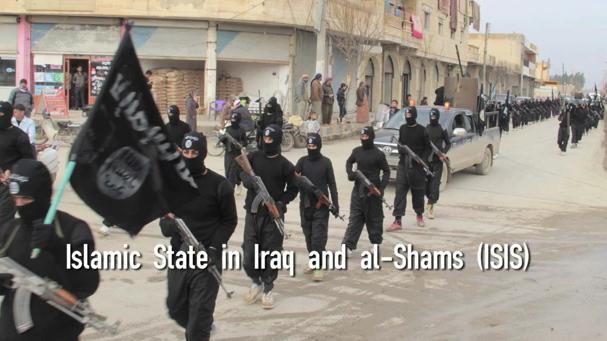Making Sense of the Turmoil In Iraq
January 7, 2014

Direct Link to Latest News
January 7, 2014

Dan said (January 8, 2014):
Bob (below) is right. This week's Fallujah news is propaganda. 'Al Qaeda resurgence in Iraq' implies the US Army was fighting Al Qaeda in Fallujah ten years ago. People with long term attention span remember it was Iraqi blowback for our gratuitous occupation of their country. Saddam Hussein and Iraq had nothing to do with 911 or "Al Qaeda". The 'Weapons of Mass Destruction' were a US State Department and British Home Office lie for a unwarranted invasion and occupation.
Now the media is lying to us again. Rewriting the history of 2004. Like this on NPR
http://www.npr.org/2014/01/07/260462916/fallujah-veterans-ask-hard-questions-about-their-sacrifices
NPR insults the soldiers who were there. It's a slap in the face of the soldiers who died (on both sides) in Fallujah in 2004 to write al CIA-DUH into the Iraq war. Read my lips - Al Queda can't 'return' where they never were. Get it straight -- 'Al QAEDA' is a franchise mercenary CONTROLLED OPPOSITION armed and funded by the beneficiaries of these wars. I get so God damned sick of the LIES.
Everyone must study the history of Mid East geopolitics all the way back to collapse of the Ottoman Empire. Start with DEVIL's GAME by Robert Dreyfuss for the crash course.
Bob said (January 7, 2014):
This article does not help us make any sense of the turmoil. In fact I would suggest it muddies the water even more by re-enforcing the myths and misconceptions (Shiah vs Sunni, nationhood, monarchy etc.) that sustain the continuing colonization of the area. Lord Curzon was instrumental in the years following WWI, in setting the ground rules that afflict the area to this day.
Making sense of the turmoil in Iraq, as in all the parts of the former Ottoman Empire, means understanding the dynamics of the dismantling of the Ottoman Khalifah, the Picot-Sykes accord between France of England, and of course the Zionist colonization of the area.
Remember that the Ottoman Empire was the most powerful empire ever. It straddled the globe but in its waning years became a target for the European countries who were themselves the tools of the powers that be. The goal was to exploit the resources of the area. The method was the balkanization of the different cultures. The unity of the people, tenuous as it was under Ottoman rule but still manageable, had to be destroyed - whether cultural, religious or intellectual. Concepts such as patriotism, nationalism, socialism, monarchy and secularism, concepts totally foreign to Islam, were introduced and encouraged by the colonial powers. The educational system was 'modernized' i.e. secularized. The arab language and the rich intellectual history of the area was disparaged and minimized. Various scoundrel quislings vied with each other before the European victors to control their fiefdoms and garner some of the favors of the money powers, and so betray their people and destroy their heritage.
The madness of that area of the world that we see today all goes back to those crucial years following (what we call) WWI. The European victors imposed a series of tyrants in the area, all beholding to European powers who were themselves beholding to the money powers. This is where the turmoil began in earnest, and the people are still struggling to free themselves of this tyranny. The political puppet masters have now moved to America but the money powers are still the same bunch.
The article describes events, but does not make any sense of the situation.
I'm sure there are other readers that can add even more insight to this important part of the world.
Henry Makow received his Ph.D. in English Literature from the University of Toronto in 1982. He welcomes your comments at
Giancarlo said (January 9, 2014):
Thanks to Bob & Dan: well said & done..